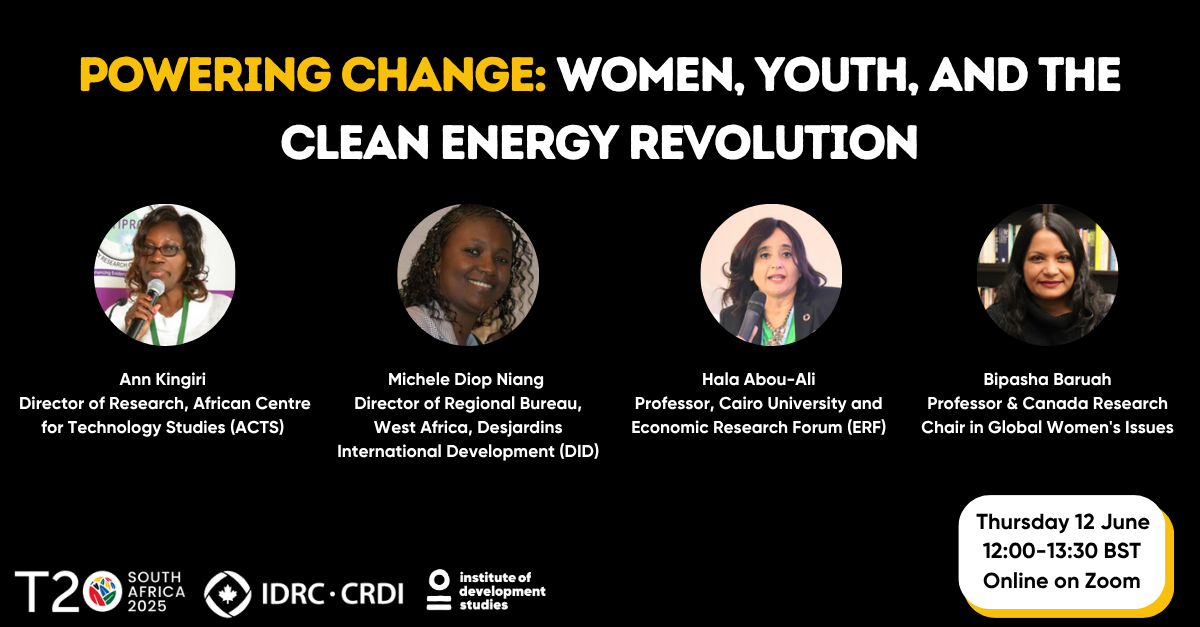Watch again
In this virtual panel event, we will bring together experts from various regions to address a critical challenge of our time: ensuring that women and youth are not left behind in the global transition to clean energy.

- Gender equity needs to be at the centre of clean energy policies or women will become even more marginalised.
- Clean energy business models often exploit small-scale business owners, particularly women and youth.
- Women face disproportionately unequal access to clean energy across the world
- The green transition must be gender sensitive, inclusive, and just.
The clean energy transition represents one of the most significant economic and environmental shifts of our generation. Despite the burgeoning opportunities in renewable energy sectors, women and youth—particularly in developing regions—continue to face disproportionate barriers to participation.
Although there is tremendous potential for employment creation and business opportunities in clean energy almost everywhere in the world, there is a growing concern that women, who are already underrepresented in the energy sector, will become even more marginalized if gender equity strategies are not proactively integrated into policy and business planning and action. Without appropriately tailored skills development, training, education, apprenticeships, employment placement, financial tools and supportive social policies, transitioning to clean energy may exacerbate existing gender inequities, limit economic growth and hinder global poverty alleviation goals, including the SDGs.
In this event, the diverse set of experts will present the evidence and discuss policy and business options to optimize the participation of women and youth in the energy sector, building on the ‘Principles for Just and Inclusive Energy Transitions’ developed under the Brazilian G20 presidency. This includes exploring issues around policy inclusiveness, incorporating intersectional perspectives on gender balance into energy planning and policies and workforce transformation through reskilling and up-skilling to create avenues of employment, while creating greater opportunities for all.
This is an official T20 side event. The panellists all represent the Clean Energy for Development: A Call to Action (CEDCA) research initiative, funded by the International Development Research Centre (IDRC). The panel is convened by the Institute of Development Studies.
Speakers
- Ann Kingiri, Director of Research, African Centre for Technology Studies (ACTS)
- Michele Diop Niang, Director of Regional Bureau, West Africa, Desjardins International Development (DID)
- Hala Abou-Ali, Professor, Cairo University and Economic Research Forum (ERF)
Chair
- Bipasha Baruah, Professor & Canada Research Chair in Global Women’s Issues

